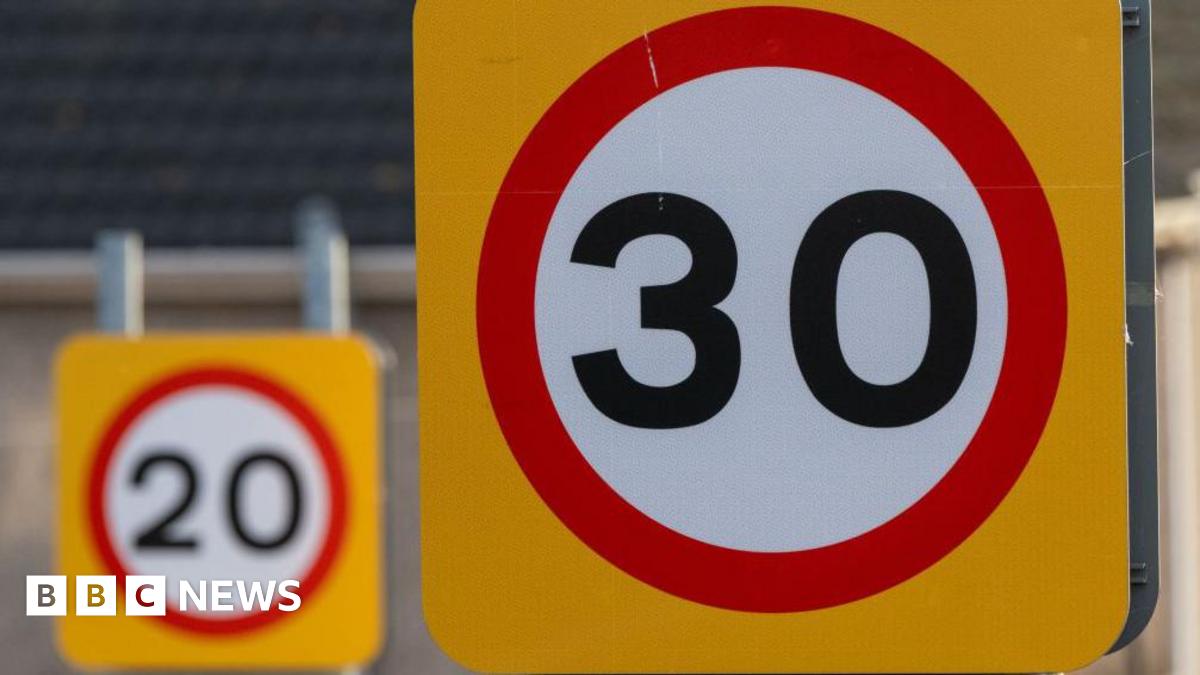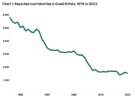I made that point to counter the claims from the entitled and selfish people that having a lower default speed limit on restricted roads is a monstrous idea.
Oh... OK...

By the way, who has said it's a "monstrous" idea? (and in what way, are they "entitled and selfish"?
I made it to show that it is the accepted norm for enormous numbers of drivers.
I think you probably mean "the accepted norm for about half a dozen administrations that you named". You have not the faintest idea what the drivers think...

I made it to show that it is the shouty, how-dare-you-tell-me-I-must-not-do-30mph-don't-you-realise-how-essential-it-is-that-I-get-my-way snowflakes are the outliers.
In that case, you failed miserably.
Trying to compare accident statistics between different countries is pointless because of the number of factors which vary.
But it you want to remove all those other factors by looking at one particular country, I suggest you do not try to deny the correlation between speed and accidents, nor the data from UK 20mph zones showing lower accident rates and reduced casualties.
Like this research, you mean?
The Department for Transport has today (22 November 2018) published the 20mph Research Study by Atkins, AECOM and Professor Mike Maher (UCL). It assesses the outcomes of introducing 20 mph speed limit schemes (ie reducing speed limits from 30mph to 20mph) in residential areas and town centres...

www.pacts.org.uk
"The changes resulting from 20mph limits are disappointing but not surprising. The study finds that signed-only 20mph limits have very small effects on speed and, surprisingly, no statistically significant effect on casualties in the majority of locations. Local people do not perceive changes and behaviour changes are small.”
Or this one, maybe?
"
Conclusion A 20 mph speed limit intervention implemented at city centre scale had little impact on long-term outcomes including road traffic collisions, casualties and speed, except for a reduction in traffic volume. Policymakers considering implementing 20 mph speed limit interventions should consider the fidelity, context and scale of implementation."
Some studies seem to show an improvement, others don't.
I suggest that because I know you really, really don't want it to be true, and the truth might upset you. And as you are a driver who cares about nothing other than the speed you may drive at, we can't have you upset, can we.
Nice bit of completely baseless demonisation, there...

Possibly even slanderous, come to think of it...
Genuine complaint?
Reasoned, fact-based complaint which takes into account majority support, the benefits to the environment, the proven reduction in casualties, etc?
Or just confected, ignorant rage stoked by deplorable libertarian and partisan newspapers, and by idiots shouting lies on social media?
Who the f'ck are you to say otherwise? You haven't a clue what each of the half-million folk who signed that, had as a motive. I suggest that because I know you really,
really don't want it to be true, and the truth might upset you.

Inappropriate 20mph limits can be revised in just the same way that inappropriate 30mph ones have been in the past. But you don't want to know that.
On the contrary, I very much
do want to know it, and I very much appreciate you acknowledging that some 20 limits might, with hindsight, have been inappropriate!

And as for society - year after year after year, surveys show a support

pposed ratio of 6 or 7 to one. I get that you don't want to know that, ut how credible do you think your denials are going to be?
Like I said... half a million signed that petition. Despite your attempts to dismiss it and denigrate them, it makes rather a mockery of your claims of such overwhelming support...
Obviously it is better for society if people obey laws willingly.
Words you would do well to dwell on...
But for the outliers who refuse to accept the legitimacy of laws which they personally dislike, I see no reason why enforcement cannot be used more widely, and more forcefully.
Put it this way - if all the drivers in the 500,000 who signed that petition in Wales systematically defied the law then I would regard the scenario where each and every one lost their licence as ideal.

What were you saying about "entitled"? Democracy eh? what a bitch....

I'm afraid that your opinion is worth no more than the next guy's and you're not in charge. You're just going to have to suck that up, I'm afraid, but by all means carry on throwing your toys out of the pram.
You seem to like polls - here's one that suggests *only* 7 out of every 10 people are "outliers"...

Despite widespread opposition to the plan, police point to a drop in casualties and crashes.
www.bbc.co.uk
Or maybe it's *only* 85% who are "outliers"?

www.gov.uk
I'm sure they do.
I'm equally sure that for most people, as they start racking up penalties for ignoring a 20mph speed limit because it used to be 30mph and they cannot tolerate it changing, the penny will drop that no, it really isn't up to them, and ignoring it really is not an OK thing to do.
Why stop there? We should deport them to the colonies! Maybe even hang them? History is absolutely chock-full of disproportionately severe penalties...
...that did absolutely nothing to reduce the crimes. Like you so wisely said: "Obviously it is better for society if people obey laws willingly." (Or as Brigadier subsequently put it, "policing by consent". Not many people want to live under your dictatorship...
Let's start at home, shall we?
Anything else I can help you with today, sir...?

The "whataboutism" was designed to show how fatuous the argument is that we shouldn't have laws because some people disrespect them.
Tell that to the suffragettes....

Maybe you're the guy who would have resolutely gone down to the village green to put in his required number of hours of archery practice long after everyone else had given up, just because it was still on the statute books?
There is no better one. However much you wish it were not so there is a positive correlation between speed and the incidence and severity of accidents.
Yes, if you stop cars from moving, there will be fewer car accidents. You really don't have to convince me of that.
The one place where we can see what happens when drivers are left to their own devices to determine what is an appropriate speed vs not, with all other possible contributory factors cancelled out, are German autobahns.
According to the German Federal Statistical Office, fast driving is the main cause of collisions on autobahns. An evaluation by the German Road Safety Council showed that in 2016 statistically 26% fewer people died on autobahns with a speed limit per kilometer than on autobahns without. A similar trend could be observed in the number of serious injuries.






